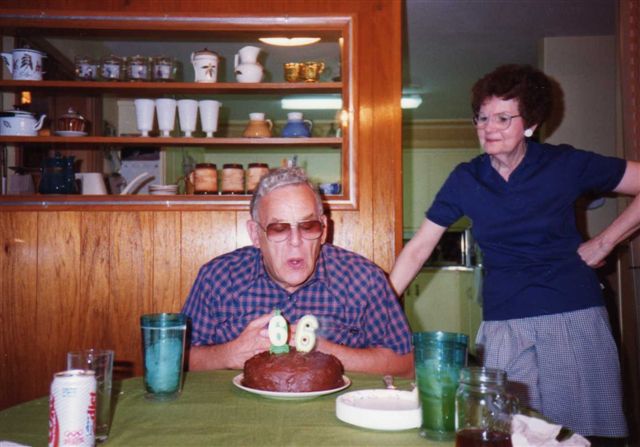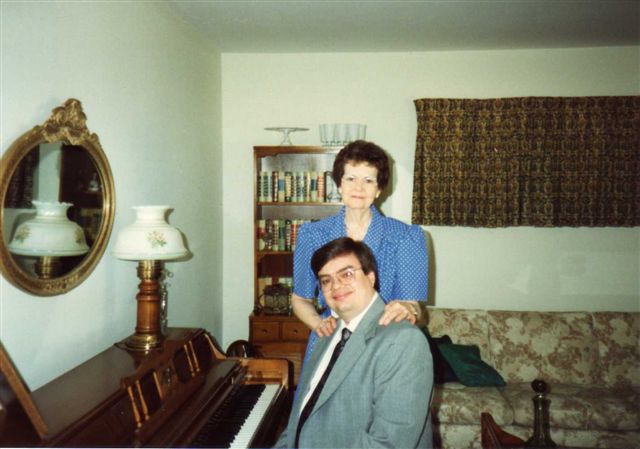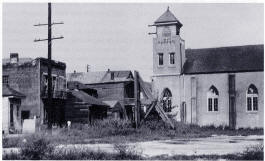 My mother’s house in Smalltown, U.S.A., is no longer empty. David and Kathy, my sister-in-law, moved in this weekend. I’ve written in this space about their decision to do so. My mother, who entered a nursing home a year and a half ago and spent the rest of her life there, knew of their plans and approved of them wholeheartedly. She had come to terms with the inescapable fact that she would never again be able to live at home, and it meant the world to her to know that the house at 713 Hickory Drive, which she loved, would stay in the family.
My mother’s house in Smalltown, U.S.A., is no longer empty. David and Kathy, my sister-in-law, moved in this weekend. I’ve written in this space about their decision to do so. My mother, who entered a nursing home a year and a half ago and spent the rest of her life there, knew of their plans and approved of them wholeheartedly. She had come to terms with the inescapable fact that she would never again be able to live at home, and it meant the world to her to know that the house at 713 Hickory Drive, which she loved, would stay in the family.
David, who is a virtuoso amateur carpenter, started remodeling the house last March, two months before my mother’s death. It took me aback when I first saw my old bedroom stripped bare, but I knew as well as my mother that it was important for David and Kathy to feel free to reshape the house in their own image. I unhesitatingly gave them my blessing, and since then I’ve rejoiced each time they send me a snapshot of the work that David is doing on the interior of the place where I spent twelve happy years.
 The work is not yet complete, but David and Kathy are now temporarily ensconced in–yes–my old room, into which they have moved the furniture from the master bedroom in which my mother and father used to sleep. I can’t tell you how much it pleases me to know that.
The work is not yet complete, but David and Kathy are now temporarily ensconced in–yes–my old room, into which they have moved the furniture from the master bedroom in which my mother and father used to sleep. I can’t tell you how much it pleases me to know that.
“The past is a foreign country: they do things differently there,” L.P. Hartley wrote in The Go-Between. I know that is true, but I also believe deeply in the communion of souls past and present. By choosing to live at 713 Hickory Drive, David and Kathy have chosen to keep faith with the departed souls of our beloved parents, and with the blessed childhood that those two good people made for us.
When David texted me on Sunday letting me know that he and Kathy had finally made the move, I sent this reply: Welcome home, my brother.
* * *
The opening of Joseph Losey’s film version of The Go-Between, adapted by Harold Pinter from the novel. Sir Michael Redgrave is the narrator and the score is by Michel Legrand:

 I doubt there have been many days in my life as fateful as that Sunday afternoon. I’d heard a certain amount of classical music by 1967–most of it on The Ed Sullivan Show–but my parents listened to pre-rock pop music, not Bach, Beethoven, or Brahms, and so it hadn’t occurred to me that I might play an instrument, any more than the fact that I spent most of my free time reading made me want to become a writer. That came later. It was seeing David Oistrakh that made me want to play the violin, and thus set me on the road to the life of art. It’s not much of an exaggeration to say that my identity as an adult arose from that event….
I doubt there have been many days in my life as fateful as that Sunday afternoon. I’d heard a certain amount of classical music by 1967–most of it on The Ed Sullivan Show–but my parents listened to pre-rock pop music, not Bach, Beethoven, or Brahms, and so it hadn’t occurred to me that I might play an instrument, any more than the fact that I spent most of my free time reading made me want to become a writer. That came later. It was seeing David Oistrakh that made me want to play the violin, and thus set me on the road to the life of art. It’s not much of an exaggeration to say that my identity as an adult arose from that event…. Fire up the time machine, set the controls for New Orleans in 1907 and make your way to a rickety night spot on Perdido Street that is known to the locals as Funky Butt Hall. Look closely and you might see a child in short pants peering through a crack in the wall and listening to the band inside. The child is Louis Armstrong, and the band, a combo led by a cornet player named Buddy Bolden, is playing a brand-new style of music that sounds like a cross between ragtime and the blues.
Fire up the time machine, set the controls for New Orleans in 1907 and make your way to a rickety night spot on Perdido Street that is known to the locals as Funky Butt Hall. Look closely and you might see a child in short pants peering through a crack in the wall and listening to the band inside. The child is Louis Armstrong, and the band, a combo led by a cornet player named Buddy Bolden, is playing a brand-new style of music that sounds like a cross between ragtime and the blues.